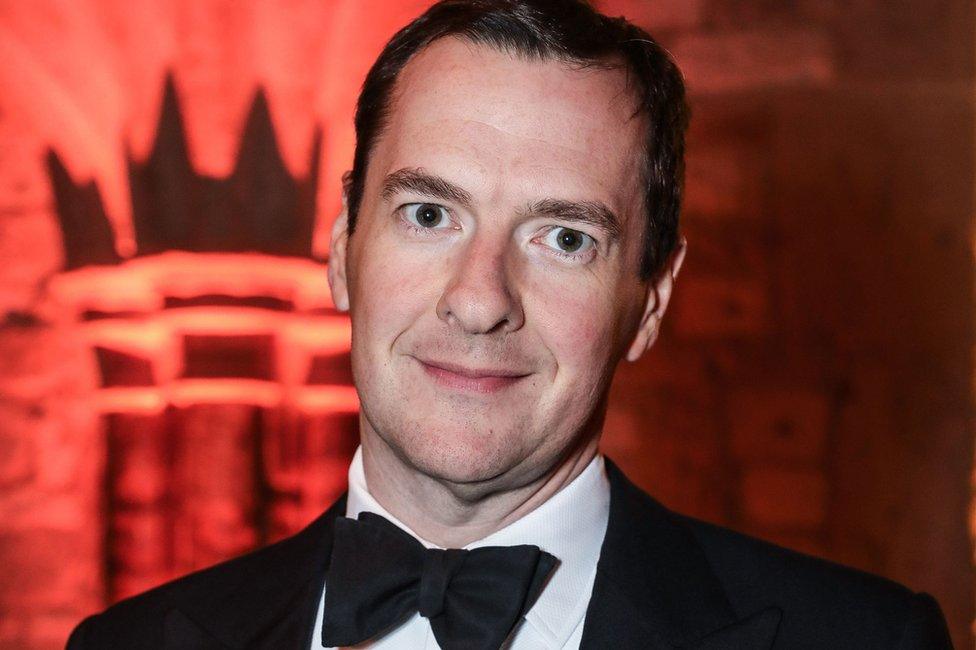George Osborne defends his £320,000 in speeches fees
- Published

Former chancellor George Osborne has defended making more than £320,000 over 31 days for giving speeches.
The register of MPs interests showed Mr Osborne declared payments for six speeches from 27 September to 27 October.
His largest fee was £81,174 from JP Morgan for a speech on 4 October, the register of MPs' interests, external showed.
The now backbencher said his income source was "similar" to that of other former chancellors.
On a visit to a construction site at Newcastle University, he said: "As a member of parliament I declare all my income, so people can see that.
"It's very similar to what previous chancellors, Labour and Conservatives, have done in the past.
"I'm now focused on this: Making the Northern Powerhouse a reality - because I'm passionate about this idea and I don't want the north east to lose out."
The MP for Tatton was sacked by Theresa May when she became prime minister.
US speeches
The register showed a total of seven hours' work was listed for the largest JP Morgan fee and detailed another speech for which he was paid £60,578 by the firm.
Mr Osborne signed up to the Washington Speakers' Bureau, from where he is due to be paid £80,240 from a company called Palmex Derivatives for a speech in New York he gave on 27 October. He recorded that as a total of two hours' work.
He also expects to be paid £69,992 by the Securities Industry and Financial Markets Association in return for speaking on 27 September and 18 October, and £28,454 from the Hoover Institution at Stanford University for a speech on 17 October, listed as three hours' work.
Under Parliamentary rules, MPs have to register within 28 days any interest which could be seen as influencing their actions or words.
The latest edition of the register also showed former justice secretary and Conservative leadership candidate Michael Gove was due to be paid £150,000 a year for writing for The Times.
He also received a £17,500 advance payment for a book.